March 1st, 2017
by Yukiko Matsuoka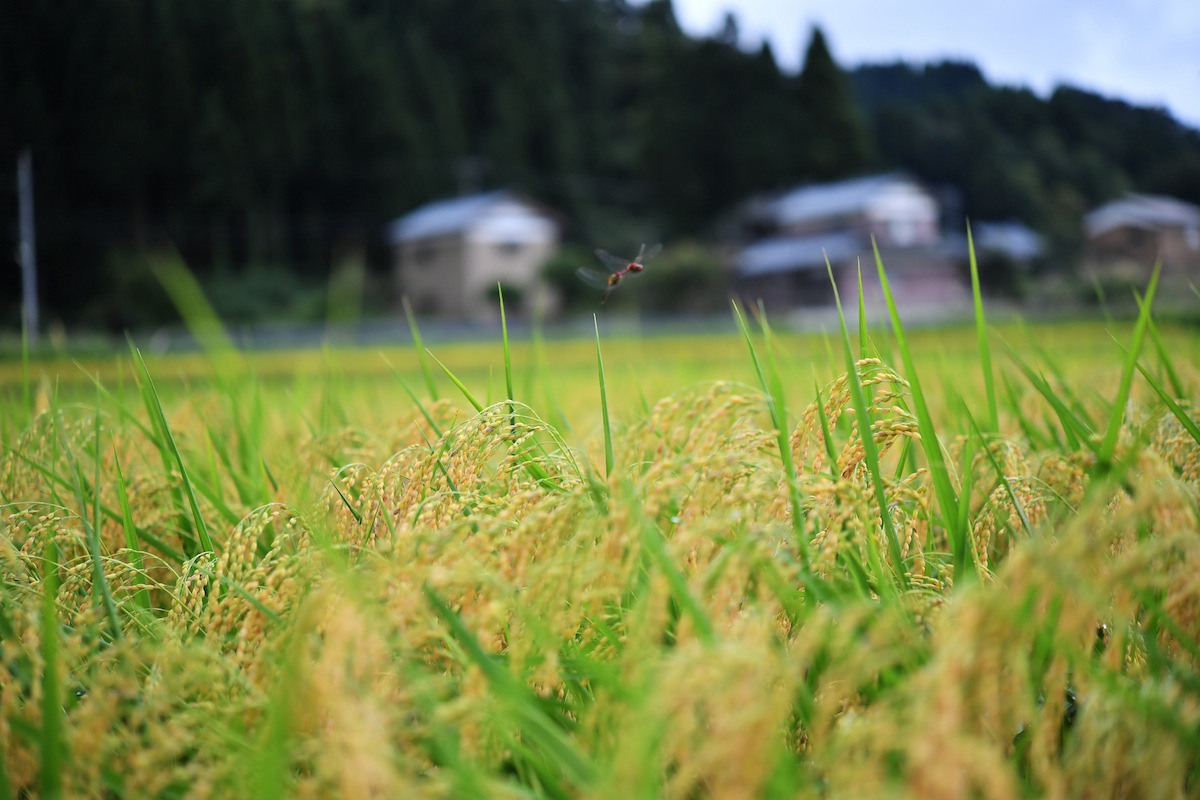

Most American farms are dominated by industrial agriculture producing chemically synthesized food products. While historically praised as an effective means to ensure food security amid rapid population growth, this approach relies excessively on synthetic fertilizers and pesticides. It imposes burdens on the global environment, public health, and local communities, proving unsustainable as a long-term food production method.
Japan, however, has long coexisted with nature. Mountains, water, food, and trees provide us with the essentials for survival. Ikeda Town, located in the southeastern part of Fukui Prefecture, is a typical mountainous town. Over 90% of its area is covered by mountains, endowed with abundant nature and water resources. Local farmers have passed down traditional agricultural techniques and preserved farmland through generations. They express gratitude to nature, recognizing that their survival depends on the blessings received from the fields and mountains, and believe natural resources must not be wasted.。
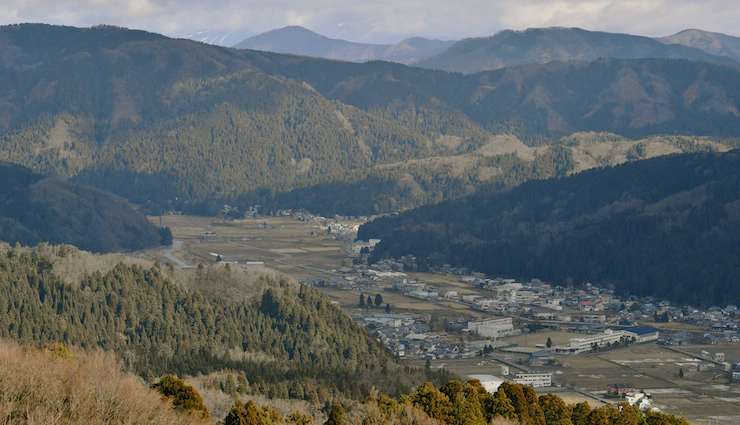
Thanks to its fertile soil, abundant rainfall, and significant diurnal temperature variation, Ikeda Town has cultivated rice for over 4,000 years. Today, farmland covers 85% of its area. Each early autumn, golden rice paddies spread across the townscape.

Local farmers sought to cultivate rice using more sustainable methods. In 1995, a local research group began studying ways to reduce chemical use in rice cultivation and improve soil quality through composting. Since 2006, drawing on this research, they have cultivated rice in an environmentally friendly manner, minimizing the use of synthetic fertilizers and pesticides. Due to its safety and excellent flavor, rice from Ikeda has become particularly popular among health-conscious consumers.
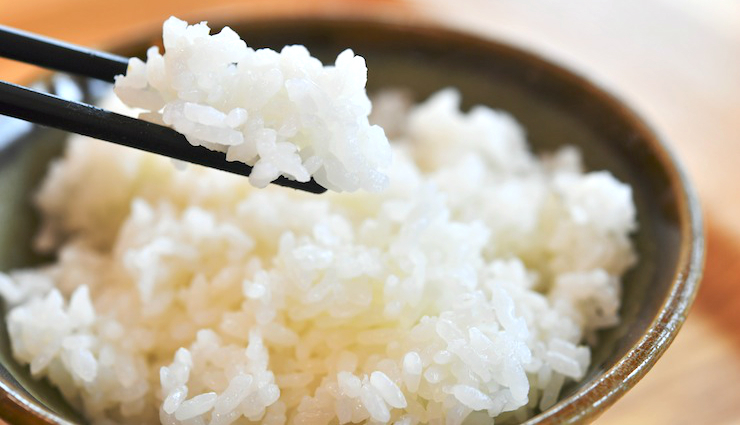
They also grow vegetables, such as tomatoes, eggplants, taros and turnips, under the local organic standards and certification named "Organic, healthy, honest farming (ゆうき・げんき正直農業)". The local producers' cooperative "101 Takumi-no-kai (101匠の会)" sells those vegetables at a supermarket in central Fukui, which are very popular due to the freshness, safety and affordability. The total revenue is more than 100 million yen (0.89 million dollars) per year, which makes the local farmers more economically sustainable.

Moreover, Ikeda has been engaged in composting food waste since 2002. The local non-profit organization "Kankyo-U-Friends (環境Uフレンズ) collects household food waste in the town three times a week and delivers them to the composting facility "Agri Power-up Center (あぐりパワーアップセンター)" in Ikeda. Those food waste are mixed with cow manure and rice hulls and processed for about 100 days. Then, ripe compost "grown" at this facility is scattered over fields, which is effective to improve the soil.
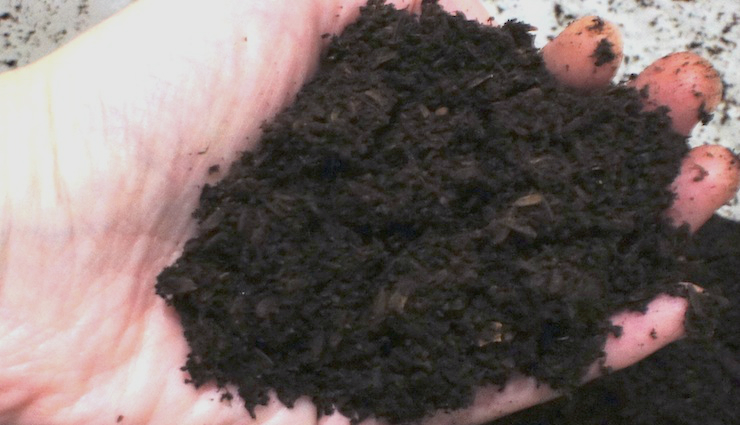
Ikeda Town has successfully established a sustainable, circular food system. Food cultivated and harvested by local farmers reaches consumers through various channels. After consumption, local residents separate waste and food scraps. The food scraps are recycled, processed through composting facilities, and returned to Ikeda's soil as compost. From the perspective of sustainable development and the circular economy, not only Japan but cities and towns worldwide should learn from the path Ikeda Town has forged.
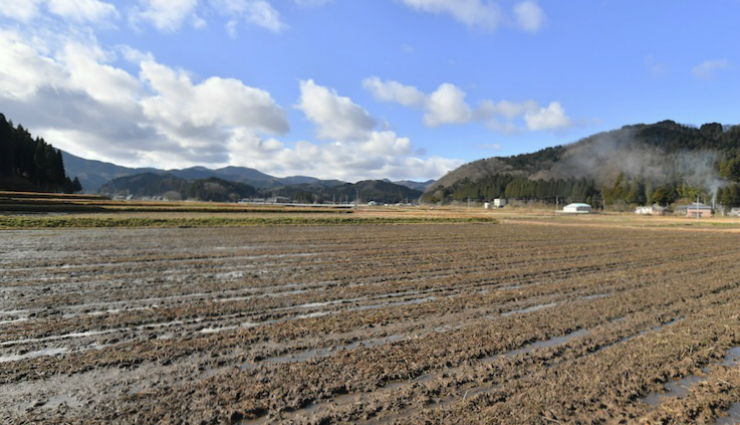
【抄訳】
米国の農場の大多数は、化学的な集約型食料生産を行う工業型農業で支配されています。かつては、急速に増加する人口に備えた食料確保の効率的な手段と評価されていましたが、合成肥料や農薬といった化学品への過度の依存により、地球環境や公共衛生、地域コミュニティに負荷がかかるため、長期的な食料生産の手段としては、持続可能性に欠けるとされています。
一方、日本は、長年、自然とともに生きてきました。山が多く、水や食料、木々など、生きるために必要なものをすべて、私たちに与えてきました。池田町は、福井県南東部にある、典型的な山のまちです。90%以上が山に覆われ、自然が豊かで、水資源が豊富です。地元の農家は代々、伝統的な農業技術とともに、田畑を引き継いできました。彼らは自然に感謝し、田畑や山の恵みに生かされていると考え、自然の資源を無駄にしてはならないと信じています。
肥沃な土地と豊富な降水量、昼夜の寒暖差により、池田町は、4,000年以上前から、米づくりを行っており、現在、田畑の85%で稲作をしています。毎年、初秋には、黄金色の田んぼが町中に美しく広がります。
地元の農家は、より持続可能な方法で米づくりをするべく、取り組んできました。1995年には、地元の研究会が、稲作において、化学品の使用を抑えながら、堆肥で土壌を改善する方法を研究しはじめました。2006年以降は、この研究を参考に、合成肥料や農薬をできる限り使わない、環境にやさしい米づくりが行われています。安全性と味のよさから、池田産の米は、とりわけ、健康志向の消費者に人気を集めています。
池田町では、地元の有機野菜認定基準「ゆうき・げんき正直農業」に基づき、トマトやナス、山芋、カブなどの野菜も栽培しています。地元の生産者団体「101匠の会」は、これらの野菜を福井の中心部にあるスーパーで販売しており、鮮度の高さや安全性、値ごろ感から、人気です。年間の収入は1億円を超え、これによって、経済的な持続可能性を地元の農家にもたらしています。
さらに、池田町では、2002年から、生ゴミの堆肥化にも取り組んでいます。地元の非営利団体「環境Uフレンズ」が家庭の生ゴミを週3回、回収し、あぐりパワーアップセンターと呼ばれる堆肥化施設に持ち込みます。生ゴミは牛糞やもみ殻と混ぜ、100日間ほどかけて堆肥にします。この施設で“育まれた”完熟堆肥は、田畑にまかれ、土壌を改善します。
池田町は、持続可能な循環型の食システムを見事に確立しています。地元の農家が栽培し、収穫した食料は、様々な販路を通じて、消費者に届けられ、地元の消費者は、食べ終わったら、他の廃棄物と生ゴミを分別します。生ゴミは回収され、堆肥施設で処理されたのち、堆肥として、池田の土に戻ってくるのです。
持続可能性や循環型経済の観点で、日本のみならず、世界中の都市やまちが池田町の足跡から学ぶべきことはたくさんありそうです。